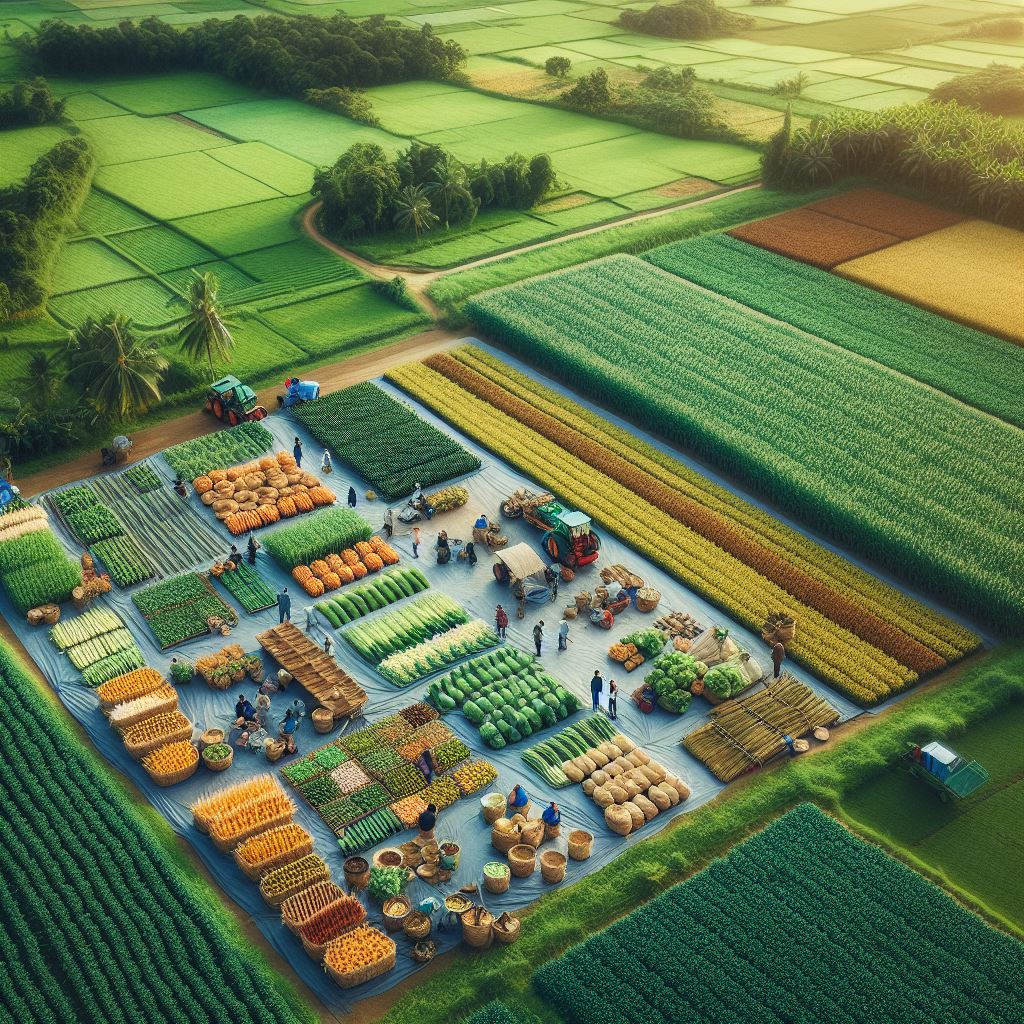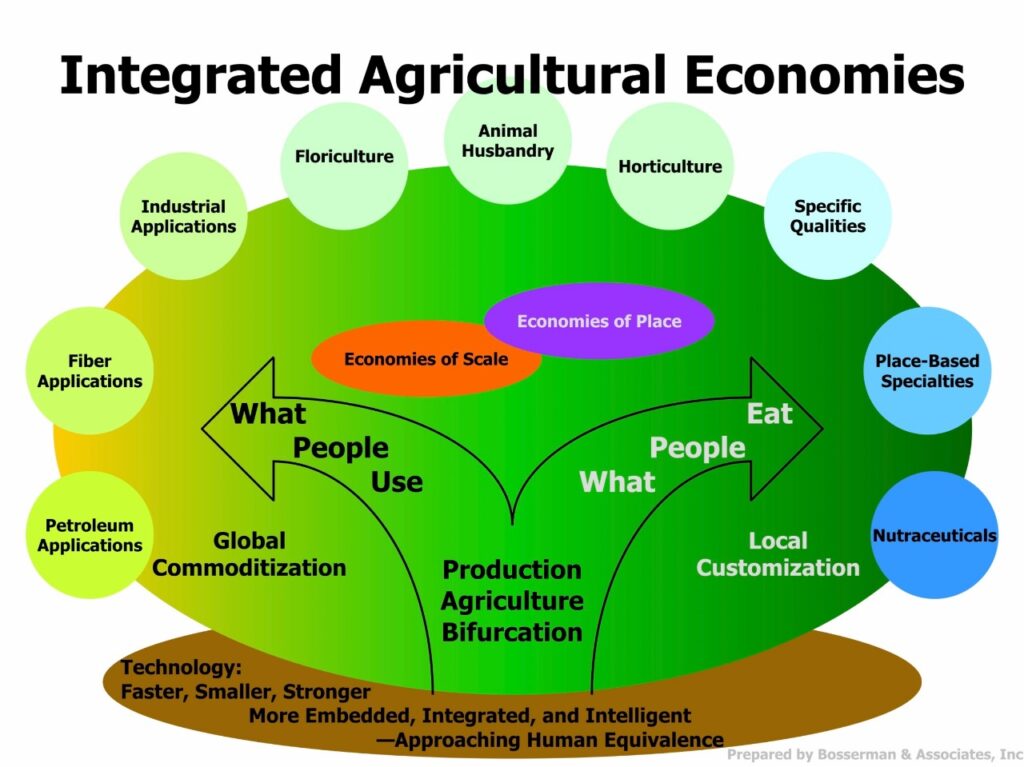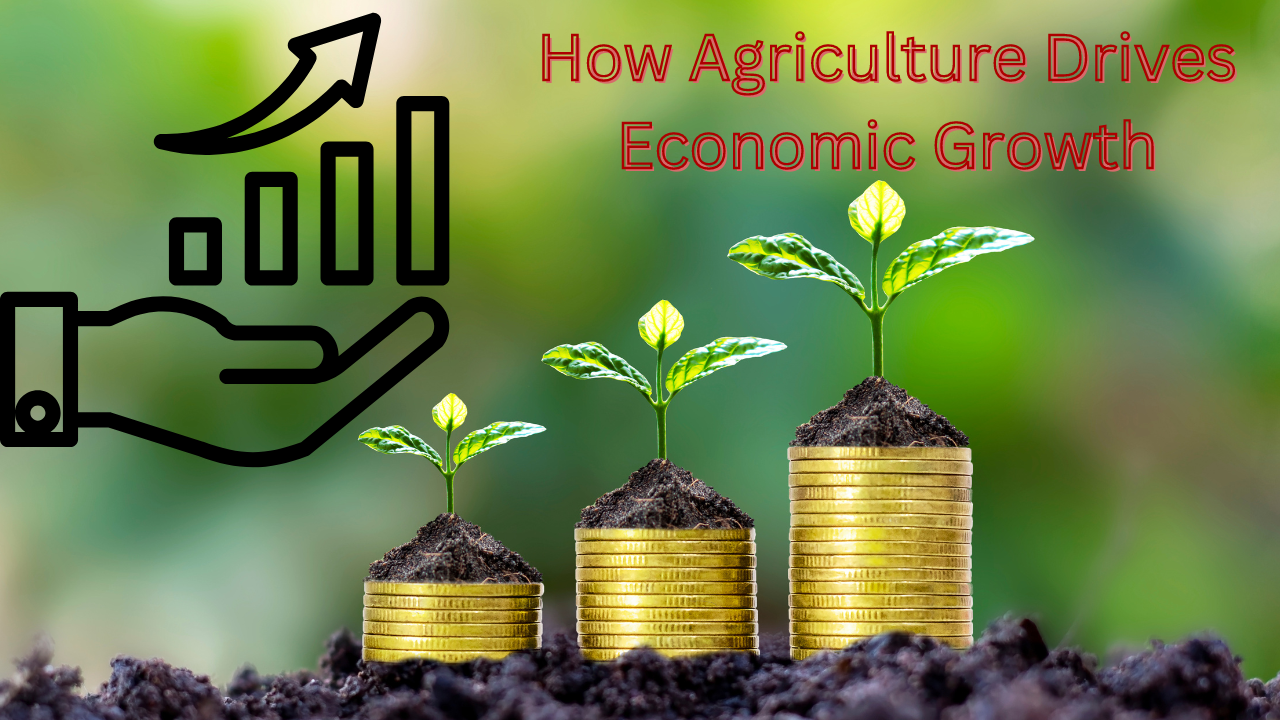How Agriculture Drives Economic Growth
Agriculture drives a vital role in the economic development of nations, contributing significantly to overall growth and prosperity. Let’s explore how agriculture contributes to economic advancement and how it fosters sustainable development and growth.
-
Employment Generation
Agriculture is a major employer globally, particularly in developing countries where a significant portion of the population depends on farming for livelihoods. The sector provides jobs not only in farming but also in related industries such as agribusiness, transportation, and food processing.
-
 Income Generation
Income GenerationAgriculture contributes to household incomes, especially in rural areas. Farmers earn from selling crops, livestock, and other agricultural products. This income circulation stimulates local economies and supports small businesses.
-
Export Revenue
Many countries rely on agricultural exports to earn foreign exchange. Cash crops like coffee, tea, cocoa, and fruits generate substantial export revenues, contributing to national GDP and trade balance.
-
Market Linkages
Agriculture creates market linkages between rural and urban areas. Farmers supply produce to urban markets, creating demand for transportation, storage, and retail services. This interconnection drives economic activities and regional development.
-
Infrastructure Development
Agriculture drives infrastructure development in rural regions. Investment in roads, irrigation systems, storage facilities, and marketplaces improves access to markets and enhances productivity, benefiting both farmers and consumers.

-
Input Industry Growth
Agriculture stimulates growth in input industries such as seeds, fertilizers, pesticides, and farm machinery. The demand for agricultural inputs creates business opportunities and stimulates innovation in agribusiness sectors.
-
Value Addition and Processing
Agricultural value addition through processing adds value to raw farm products, creating higher-value products like packaged foods, beverages, and textiles. This value chain development boosts economic growth and diversification.
-
Rural Development
Investments in agriculture contribute to rural development by reducing poverty and inequality. Increased agricultural productivity leads to improved living standards, better access to education and healthcare, and overall economic empowerment of rural communities.
-
Economic Stability
Agriculture provides stability to economies by ensuring food security and mitigating the impact of food price fluctuations. A strong agricultural base helps buffer against external shocks and fosters overall economic resilience.
-
Innovation and Technology Adoption
Modern agricultural practices drive innovation and technology adoption. Investments in agricultural research, biotechnology, and precision farming enhance productivity, efficiency, and sustainability, contributing to economic growth.
-
Expansion of Agricultural Activities
As economies grow, there is an increasing demand for diverse agricultural products. This leads to the expansion of agricultural activities into new markets and the adoption of modern techniques to increase productivity and meet market demands.
Agriculture’s multifaceted contributions to economic growth highlight its significance as a cornerstone of development. Governments and policymakers recognize the importance of investing in agriculture to foster inclusive growth, alleviate poverty, and achieve sustainable development goals. The continuous growth and development of agriculture are essential for ensuring food security, improving livelihoods, and driving economic prosperity worldwide.
Frequently Asked Questions (FAQ) about Agriculture Courses
Q1: What are the entry requirements for agriculture courses?
- Entry requirements vary by institution and program but generally include a high school diploma or equivalent. Some advanced programs may require a bachelor’s degree in a related field.
Q2: What skills can I develop through agriculture courses?
- Agriculture courses help develop skills such as critical thinking, problem-solving, agricultural research, farm management, sustainability practices, and agribusiness management.
Q3: What career options are available after completing agriculture courses?
- Graduates can pursue careers as agricultural scientists, farm managers, agronomists, agribusiness consultants, livestock managers, crop advisors, agricultural economists, and researchers in various sectors of the agricultural industry.
Q4: Is practical experience included in agriculture courses?
- Yes, many agriculture courses include practical training through internships, fieldwork, and laboratory sessions to provide hands-on experience in real-world agricultural settings.
Q5: Can I specialize in a specific area of agriculture?
- Yes, agriculture courses offer various specializations such as agricultural science and technology, agribusiness management, sustainable agriculture, and animal husbandry, allowing students to focus on their areas of interest.
Completing agriculture courses opens doors to a rewarding career path that positively impacts food security, environmental sustainability, and economic development.
To know more – Visit our Website
For admission related queries – Click here or call us @ 9997089170
Author :- Davesh

